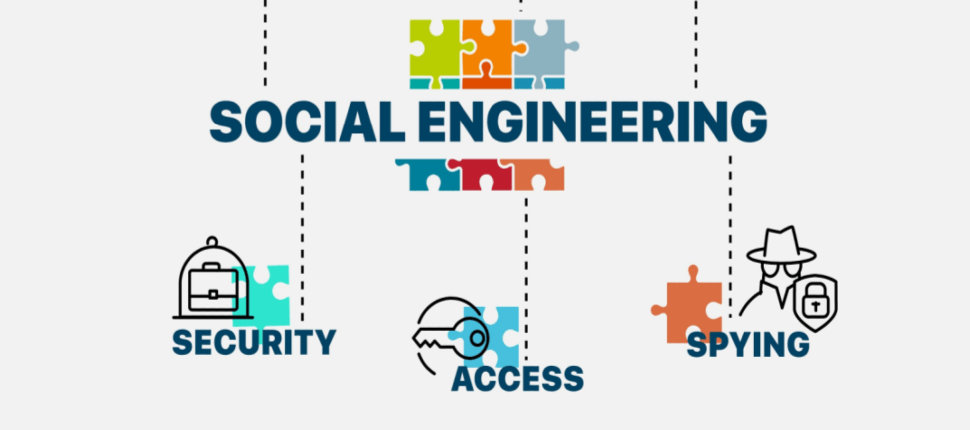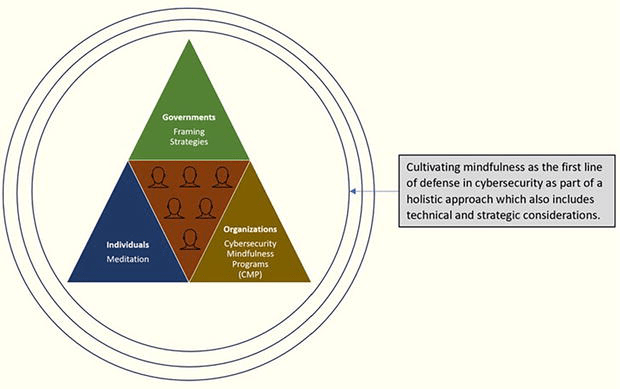Mindfulness in Preventing Social Engineering
Social engineering attacks make up over 90% of all successful cybersecurity breaches. These attacks exploit human vulnerabilities, often bypassing the strongest security measures.
Cybercriminals use tactics like phishing, fake emails, and even phone scams to manipulate individuals into revealing sensitive information. Because mindfulness enhances focus and mental toughness, it is essential for thwarting social engineering attacks.

Social engineers thrive on human weaknesses such as stress, urgency, and distractions. When people are overwhelmed or distracted, they are more likely to fall for phishing scams or share sensitive information.
This is where mindfulness in preventing social engineering comes into play. By practicing mindfulness, you can stay alert, calm, and focused, reducing your chances of being manipulated by cybercriminals.
Understanding Human Vulnerabilities in Cybersecurity
Humans are often the weakest link in cybersecurity. Cognitive biases, such as confirmation bias, lead people to trust familiar information and ignore warnings. Situational factors, such as fatigue and distractions, make individuals even more vulnerable to social engineering attacks.
For example, multitasking reduces vigilance, increasing the likelihood of falling for scams. This is why mindfulness in preventing social engineering is so essential.
Mindfulness helps combat these vulnerabilities by keeping individuals aware of their thoughts and emotions. It also encourages people to stay focused on one task at a time, which is crucial for maintaining vigilance in high-pressure situations. When combined with other security measures, mindfulness creates a powerful defense against cyber threats.
The Role of Mindfulness in Preventing Social Engineering
Mindfulness in preventing social engineering offers a proactive approach to cybersecurity. Cybercriminals’ urgent or deceptive techniques are less likely to divert you if you remain alert and in the moment.
Among the essential components of mindfulness are:
- Present Moment Focus: Stay attentive to the current task to reduce the risk of falling victim to distractions that lead to security mistakes.
- Meta-Awareness: This involves being aware of internal thoughts and external cues, such as suspicious emails or phone calls.
- Non-Judgmental Attitude: Approaching potential threats with curiosity instead of fear helps make rational decisions and prevents impulsive reactions.
These techniques help you stay grounded and alert, ensuring that you recognize and respond appropriately to threats.

Practical Mindfulness Techniques for Cybersecurity
Incorporating mindfulness into daily routines can significantly enhance cybersecurity awareness. Here are some effective techniques to strengthen defenses against social engineering:
- Single-Tasking: Focus on one task at a time, using 45-minute intervals. This improves focus and reduces the chance of missing security threats.
- Mindful Email Checking: Instead of checking your inbox constantly, set specific times for email review. This lets you approach each message thoughtfully and security-consciously.
- Body Awareness: Pay attention to your body’s signals, like your heart rate or breathing. These cues can alert you to potential threats before your rational mind recognizes them.
- Breathing Exercises: Techniques like the 12-second box-breathing method can calm your nervous system during stressful situations.
- Pause and Reflect: Before clicking on links or downloading attachments, take a moment to ask, “Is this expected? Does it make sense?”
Again, these techniques help people stay focused and composed under pressure, which improves mindfulness and helps prevent social engineering.

Implementing Mindfulness in Security Awareness Training
Integrating mindfulness into cybersecurity training programs boosts both mental resilience and awareness. Encouraging mindful habits can reduce stress, improve focus, and prevent costly errors.
Creating a mindful workplace environment, through practices like shorter meetings or stretching during breaks, can significantly enhance cybersecurity posture.
Mindfulness in preventing social engineering is especially critical as cybercriminals use advanced methods, including generative AI, to enhance their attacks. By incorporating mindfulness into daily routines and cybersecurity practices, individuals can better defend themselves against these evolving threats.

Conclusion
Mindfulness in preventing social engineering is a simple yet powerful tool in strengthening cybersecurity defenses. It allows individuals to stay alert, calm, and focused, reducing their vulnerability to cyber threats. By practicing mindfulness, people can transform their minds into their greatest cybersecurity asset.
What mindfulness techniques have you found most effective in boosting your cybersecurity awareness? Let’s know what you think in the coment below.
Related Posts:
- What TikTok SaferTogether Campaign Means For Nigerian Internet Users
- Kaspersky and AFRIPOL Unite in 5-Year Partnership to Fortify Africa’s Cyber Defenses
- LINX Africa Digital Transformation: Pioneering Local Interconnection at AfricaCom 2024
- Nigerian Activist Dele Farotimi Remanded in Defamation Case Against Afe Babalola














